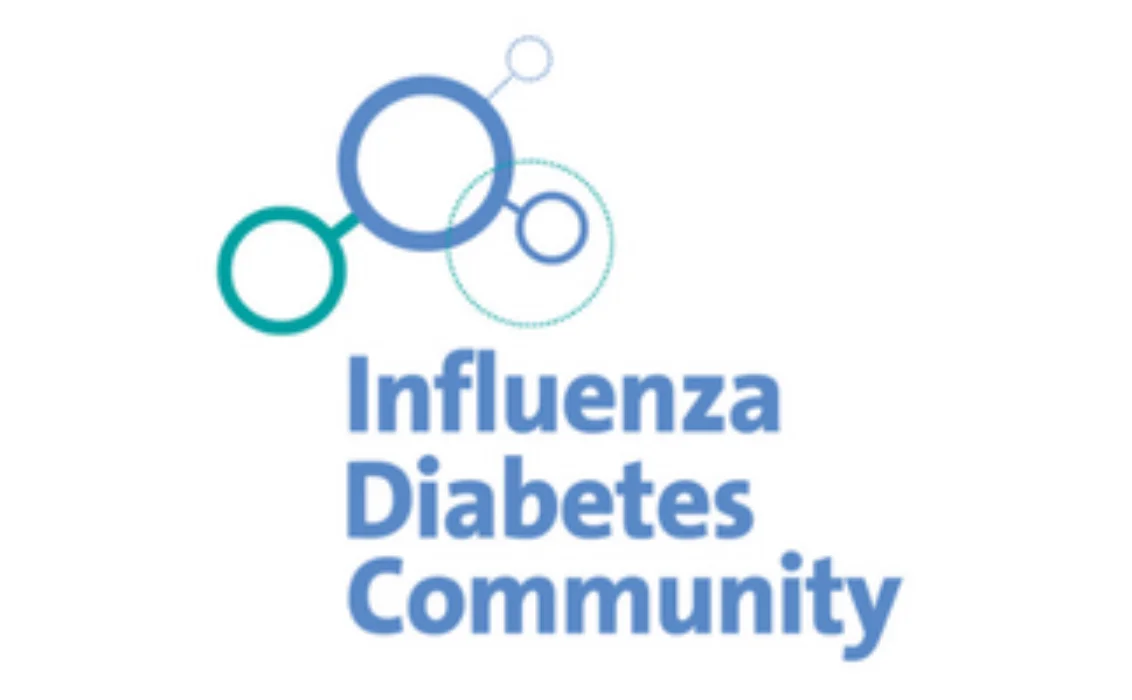People living with diabetes (PwD) are three to six times more likely to be hospitalised with flu during an outbreak than the general population. They are also at much greater risk of developing other respiratory diseases such as COVID-19. On November 16, Dr Konstantinos Makrilakis, IDF Europe board member, co-chaired a webinar with Dr Marco Goeijenbier organised by the Influenza Diabetes Community (IDC) to mark World Diabetes Day 2021. This webinar aimed to explore best practice examples relating to the prevention of respiratory viral infections for people living with diabetes, examine new research as well as identify gaps in awareness.
Dr Konstantinos Makrilakis opened the webinar by emphasising the disproportionate risk faced by PwD of COVID-19 and influenza-related complications, and especially the longer hospital stays for PwD developing the flu and their 50% higher chance of complications and death.
Daniel Howarth from Diabetes UK illustrated the proactive approach taken by the UK in reaching out to PwD to inform them of the importance of getting vaccinated against the flu, using social media, press articles, position papers and through close collaboration with the National Health Service (NHS). He also stressed the need to address the frequent misconceptions around vaccines.
Dr Robert Gabbay from the American Diabetes Association (ADA) outlined the inequity in access to diabetes care in the US and the disproportionate impact of COVID-19 on PwD. In the US, “40% of Americans who died from COVID had diabetes while only representing 10 % of the population. Also, 43% of Americans with diabetes delayed their care during the pandemic”. Last year, ADA launched the Health Equity Bill of Rights to fight the inequalities in access to quality diabetes care in the US, resulting from race, gender, age, education, income or zip code. The association is also conducting an information campaign to educate and foster trust among the black community, a group where more than one in three adults do not believe that vaccination is the best protection against the flu. Lastly, Dr Gabbay mentioned the importance of changing the narrative to foster trust in vaccine reticent people – “A collaborative goal-oriented communication style is more effective in changing behaviour than a top-down autocratic order”. The five steps to increase vaccine coverage are: 1.-remove cost barriers, 2.-bring it to the people, 3. build trust, 4. use community leaders, 5. let people see people like them.
Dr Kirsty Short from the University of Queensland provided scientific evidence behind the effect of influenza and diabetes on PwD. Until recently, there was a lack of understanding as to whether it was diabetes itself which increased the risk of complications and deaths or other diabetes-related comorbidities. Studies analysing 7,244 COVID-19 patients from 11 countries showed that diabetes by itself significantly increases non-invasive ventilation but not mortality. It is the high fluctuation in blood glucose levels that results in a higher risk of death compared to PwD with a more stable blood glucose level. Dr Short also discussed the efficacy of vaccine on PwD. According to the study, elevated HBA1C seemed to lower vaccine efficacy which suggests that booster vaccines are needed to optimally prevent the risk of hospitalization and death of COVID-19 in people living with diabetes.
The talks were followed by a lively panel discussion, where Sebnem Guneyman, Type 1 advocate, stressed the role of general practitioners, as trusted sources, in helping convince people who may be reticent to be vaccinated. The panel discussion focused on the opinion behind the concomitant vaccination of flu and COVID-19 and on how to implement such measures in the most efficient way possible. The Chair of ESWI, Prof. Ab Osterhaus summed up and concluded the webinar with key takeaway messages.
The recording of the webinar can be followed on the IDC website here.
More information on flu vaccination for PwD can be found on the Influenza Diabetes Community website, as well as in IDF Europe’s Position paper on Vaccination of People living with Diabetes, which also addresses other vaccine-preventable diseases such as Pneumonia, Hepatitis B, Zoster and Tetanus/Diphtheria/Pertussis.



